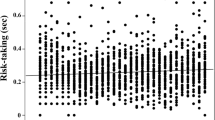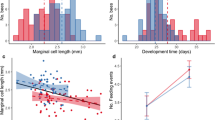Abstract
A widely accepted paradigm in mammalian behavioral biology is that exposure to unfamiliar males causes pregnancy disruption in female rodents (commonly known as the Bruce effect). This behavioral phenomenon has been demonstrated in the laboratory with at least 12 species of rodents, primarily within the genus Microtus, and is supposedly an adaptation that provides male perpetrators with reproductive access to females, and functions, for females, as a counterstrategy to infanticide. However, neither the Bruce effect nor its adaptive significance have been tested experimentally in the field. In a controlled field study, we exposed reproducing female gray-tailed voles (Microtus canicaudus) to treatments in which males were removed and replaced by either unfamiliar males or females, and found no significant differences in intervals between parturitions, number of pregnancies, and juvenile recruitment among the treatment and control animals. Thus, we conclude that neither the Bruce effect nor infanticide occurred differentially as a consequence of the treatments in gray-tailed voles. Multimale mating to confuse paternity, and postpartum estrus resulting in simultaneous pregnancy and lactation may deter infanticide and functionally negate any benefits of pregnancy disruption in gray-tailed voles and perhaps other murid rodents with similar mating systems. In light of our results, we recommend field verification for other species of murid rodents that exhibit the Bruce effect in the laboratory before the results are applied to evolutionary theory.
Similar content being viewed by others
Author information
Authors and Affiliations
Additional information
Received: 12 May 1998 / Accepted after revision: 6 September 1998
Rights and permissions
About this article
Cite this article
de la Maza, H., Wolff, J. & Lindsey, A. Exposure to strange adults does not cause pregnancy disruption or infanticide in the gray-tailed vole. Behav Ecol Sociobiol 45, 107–113 (1999). https://doi.org/10.1007/s002650050544
Issue Date:
DOI: https://doi.org/10.1007/s002650050544




